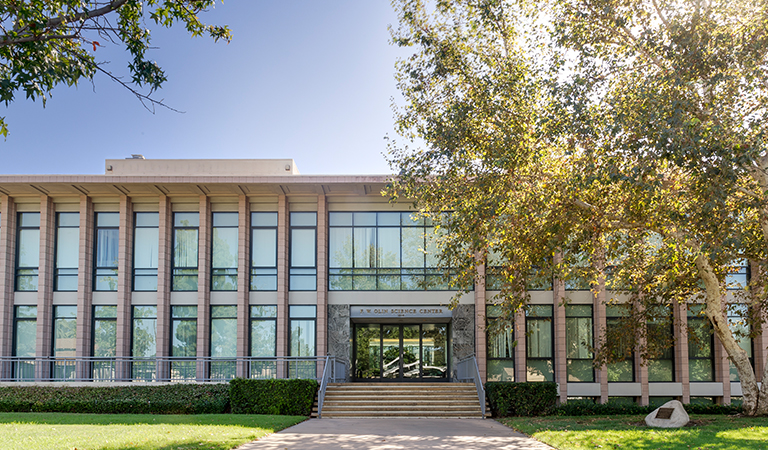Joint Major in Computer Science and Climate
November 21, 2024
The Hixon Center for Climate and the Environment at Harvey Mudd College is the primary home for campus efforts related to climate, sustainability and environmental studies, including course development, faculty-led scholarship and special events. The Department of Computer Science and the Hixon Center now offer a new major for students interested in the highly interdisciplinary field of computer science and climate science. This is one of several new joint majors with a climate focus.
“As more people are interested in contributing to climate change interventions, this is an exciting time for Mudders to engage in defining what pedagogy and research at the intersection of CS and climate will look like,” says Lynn Kirabo, Maria M. Klawe Assistant Professor of Climate and Computer Science. “We know that these contributions are unlikely to be created by one discipline, as such, our philosophy supports graduates who are human-factor conscious, ethics-aware, and impact-literate.”
Computer science innovation expands the possibilities for many climate-relevant areas, including climate justice, clean energy system infrastructure, earth system data retrieval, and climate prediction. Given the prevalence of large, complex datasets in climate science, computational thinking supports the development of climate literacy, while complementary coursework in climate science, impacts, interventions, and contexts adds breadth and perspective for students.
“The CS/climate major will likely appeal to students who want to bring advances and tools in computer science to the work of climate science, climate adaptation, and climate advocacy,” says Lelia Hawkins, director of the Hixon Center and Hixon Professor of Climate Studies. “It may also appeal to students who want to pursue work in computer science with the added literacy in climate change, including the earth sciences, technology, and social dimensions of the climate challenge. The union of these two areas unlocks enormous possibilities in what our future alumni can accomplish.”
Students pursuing the joint major in computer science and climate complete foundational coursework in the principles of computer science, data structures, discrete mathematics, and professional computing practices as well as either computer systems or algorithms, and select computer science electives that support their intended career path. Students also choose from a menu of climate courses that fulfill requirements across several dimensions of climate change. Foundational coursework in thermodynamics, along with a choice of additional STEM breadth ensures students are prepared for advanced study in climate or related programs. And, joint majors complete a course in human-centered thinking, supporting the philosophical goals of this program.
“The exciting thing for me is that students don’t have to choose between gaining computational skills through CS and developing a deep understanding of climate change, which is one of the most pressing issues of our time,” says computer science professor Julie Medero.
The program is distinct from a green computing program. Like all Hixon Center joint majors in climate, coursework in the joint major is designed to help students develop a holistic understanding of climate change, with emphasis on the interaction of physical and human systems. In addition to the CS and climate major, the College currently offers a joint major in chemistry and climate. Majors in biology and climate, and mathematics and climate are in development.
“Work in climate among HMC alumni is not new,” says Hawkins. “Our graduates have been contributing to climate action and awareness for many decades, and we are tremendously proud of that work and the education that made it possible. What is new about our program is the expansion of climate experts on campus from a variety of disciplines. The new joint majors create curricular space for students to begin their journey in climate during their time at Harvey Mudd.”
